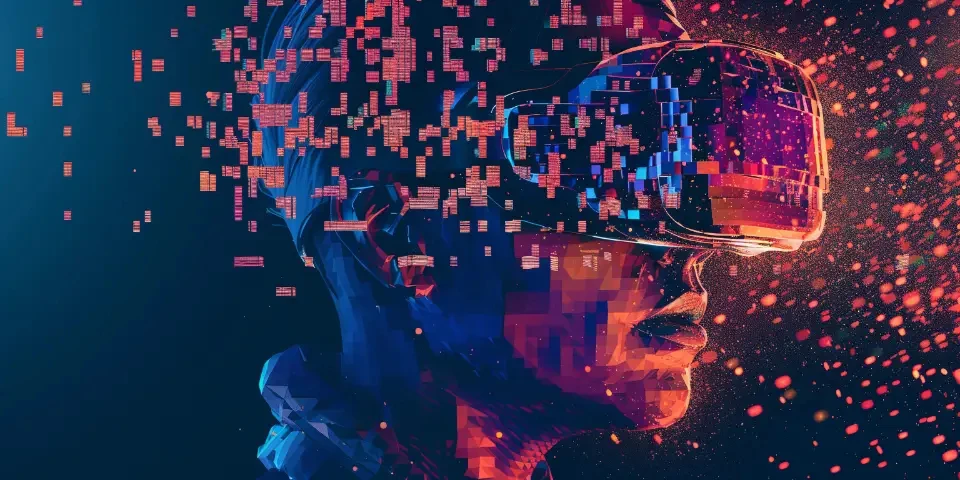AI for Sustainable Development Harnessing Technology for a Better Future
Artificial Intelligence (AI) has emerged as a powerful tool that can contribute to sustainable development and address global challenges. By leveraging technology, AI can be harnessed to create a better future for humanity. In this article, we will explore the various ways in which AI can be utilized for sustainable development.
1. Environmental Monitoring and Conservation
AI can play a crucial role in monitoring and conserving the environment. Through the analysis of satellite imagery and sensor data, AI algorithms can detect deforestation, track wildlife populations, and monitor air and water quality. These insights can aid in the development of effective conservation strategies and policies.

Additionally, AI-powered drones can be used for the surveillance of protected areas, enabling real-time monitoring and rapid response to illegal activities such as poaching or illegal logging. This technology helps protect biodiversity and preserve fragile ecosystems.
2. Climate Change Mitigation and Adaptation
Addressing climate change requires innovative solutions, and AI can be a powerful ally in this fight. Machine learning algorithms can analyze vast amounts of climate data to identify patterns, predict climate events, and model different scenarios.
Moreover, AI can optimize energy systems by analyzing consumption patterns and suggesting energy-efficient solutions. Intelligent grids can automatically adjust energy distribution based on demand, reducing waste and reliance on fossil fuels.
3. Smart Agriculture and Food Security
With AI, agriculture can become more efficient and sustainable. AI-powered systems can analyze soil conditions and weather patterns to optimize irrigation and fertilization, reducing water and chemical usage.
Furthermore, computer vision algorithms combined with drones or robots can monitor crop health, detect diseases or pests early on, and enable targeted interventions. These technologies improve crop yields and reduce the need for harmful pesticides, contributing to food security.
4. Health Care and Disease Diagnosis
AI has the potential to revolutionize healthcare by improving disease diagnosis and treatment. Machine learning algorithms can analyze medical images, such as X-rays or MRIs, to identify patterns and assist in the early detection of diseases like cancer.
Additionally, AI-powered chatbots and virtual assistants can provide personalized healthcare advice, leading to better patient outcomes and improved accessibility to medical services, especially in remote areas.
5. Sustainable Transportation
AI can help transform transportation systems to be more sustainable and efficient. Smart traffic management systems, utilizing AI algorithms, can optimize traffic flow, reduce congestion, and minimize carbon emissions.
Furthermore, autonomous vehicles powered by AI technology have the potential to reduce accidents and improve fuel efficiency. They can also enhance public transportation systems and provide accessible mobility options for all.
6. Resource Optimization and Waste Management
AI can aid in optimizing resource usage and reducing waste. Machine learning algorithms can analyze consumption patterns to identify opportunities for efficiency improvements. This can apply to industries, businesses, and households, leading to reduced energy consumption and greenhouse gas emissions.
Moreover, AI can enhance waste management by automating processes such as sorting recyclables or identifying the most suitable disposal methods for different materials. This leads to improved recycling rates and a more sustainable approach to waste management.
7. Disaster Management and Response
In the face of natural disasters, AI can assist in disaster management and response efforts. By analyzing historical data, AI algorithms can predict the impact of natural disasters and help authorities prepare and allocate resources accordingly.
Furthermore, AI-powered robots and drones can be used for search and rescue missions, assessing damage, and providing real-time data for decision-making. These technologies can save lives and minimize the impact of disasters on communities.
8. Ethical Considerations and Fairness
While AI offers immense potential for sustainable development, ethical considerations must be addressed. Fairness, transparency, and bias-free algorithms are crucial to ensure that AI solutions do not exacerbate existing inequalities or reinforce discriminatory practices.
It is essential to establish principles and guidelines for the development and deployment of AI that prioritize inclusivity, accountability, and respect for human rights. Collaboration between policymakers, technologists, and society is necessary to navigate the ethical challenges of AI and ensure a better future for all.
Frequently Asked Questions:
Q: Can AI replace human jobs in sustainable development?
A: While AI might automate certain tasks, it is more likely to augment human capabilities in sustainable development rather than replace them. AI can provide valuable insights and support decision-making, allowing humans to focus on more complex and creative problem-solving.
Q: What are the potential risks associated with AI in sustainable development?
A: Risks include biases in AI algorithms, privacy concerns, and the concentration of power in AI technology. It is crucial to proactively address these challenges and mitigate their impacts to ensure the responsible and ethical use of AI for sustainable development.
Q: How can AI contribute to social equity and inclusivity?
A: AI can help address social inequalities by providing access to essential services like healthcare and education in remote or underserved areas. However, careful design and consideration of biases are necessary to ensure that AI solutions do not perpetuate existing inequalities.
References:
1. United Nations Development Programme (UNDP) - "Artificial Intelligence for Sustainable Development".
2. World Health Organization (WHO) - "Artificial intelligence in health: state of the art and future challenges".
3. The World Bank - "Leveraging Artificial Intelligence for Development".
Explore your companion in WeMate